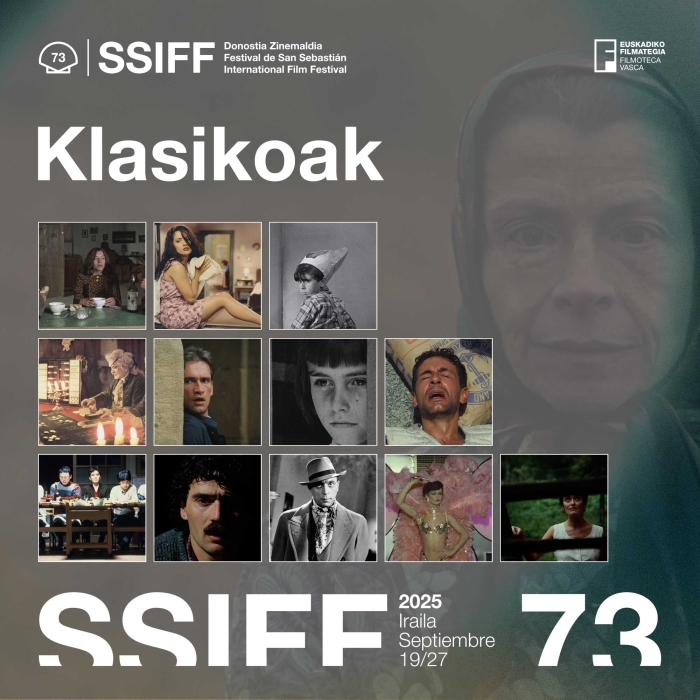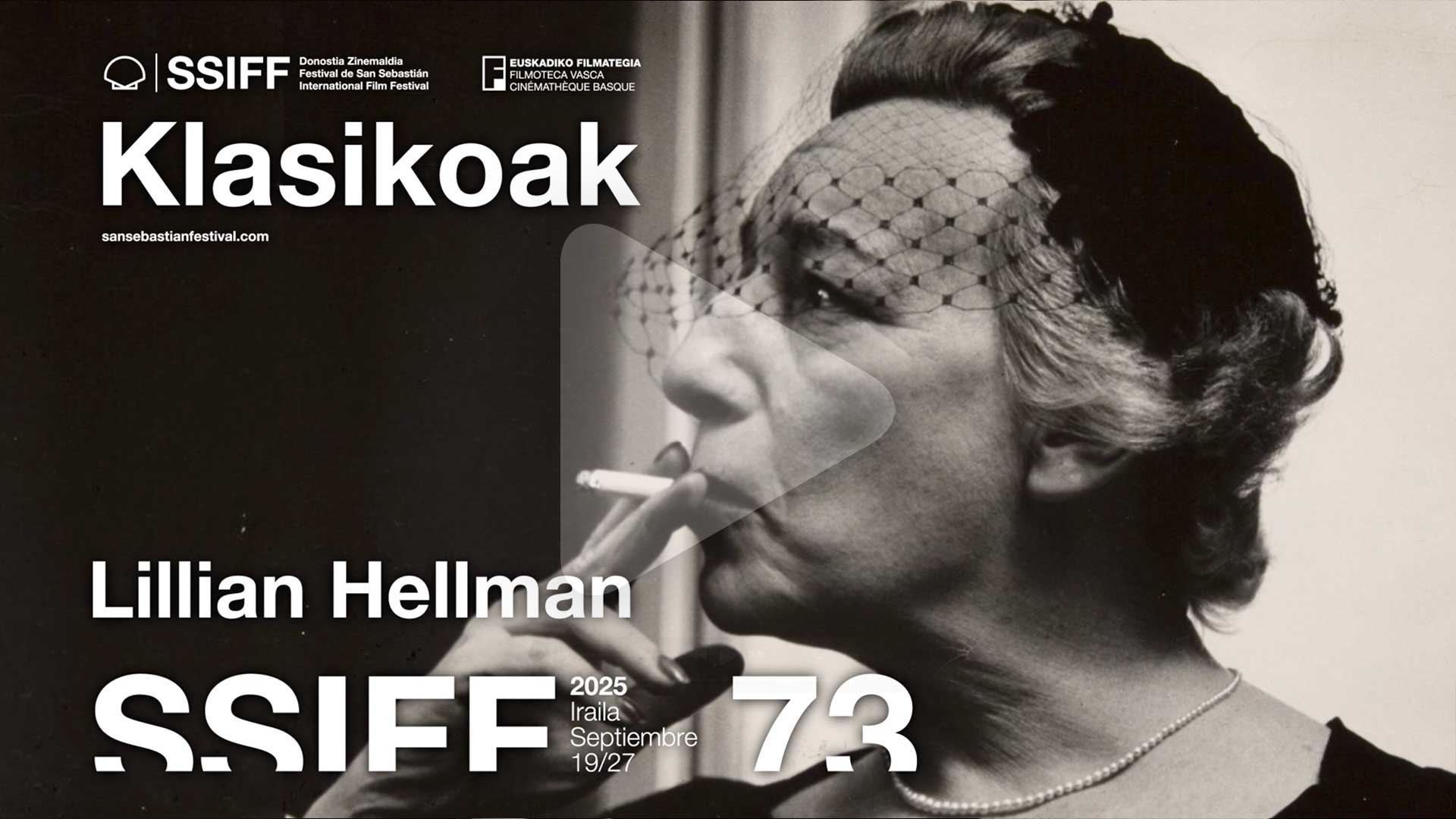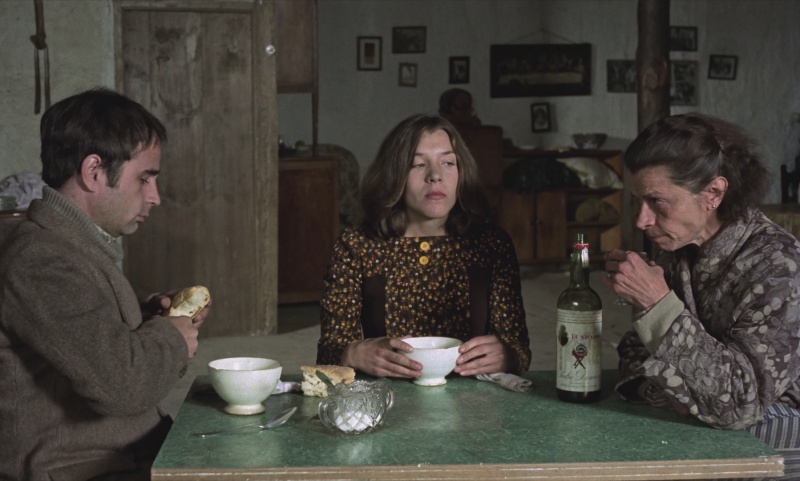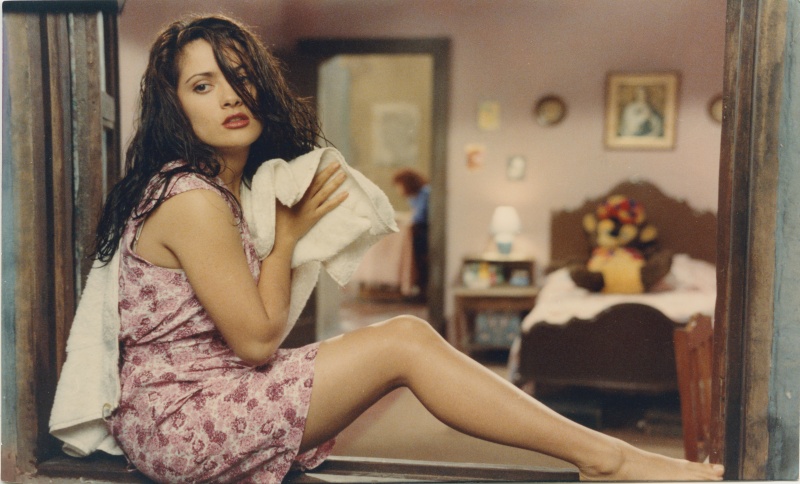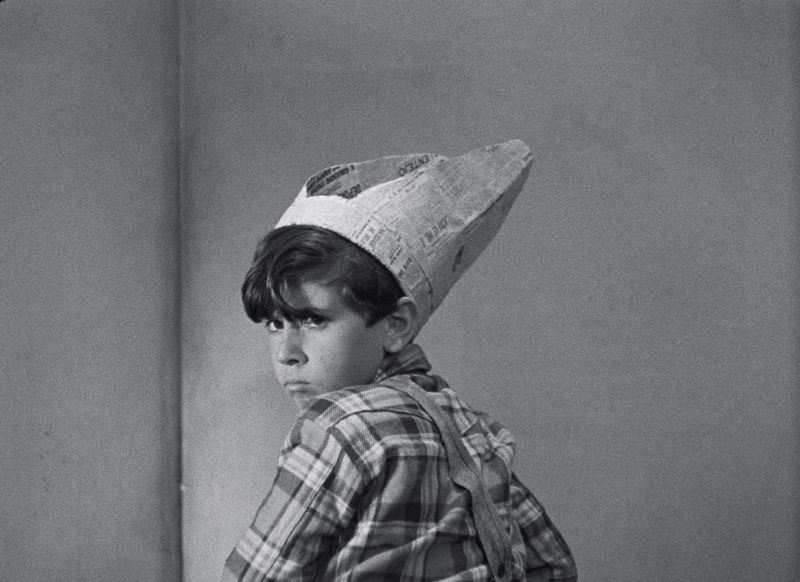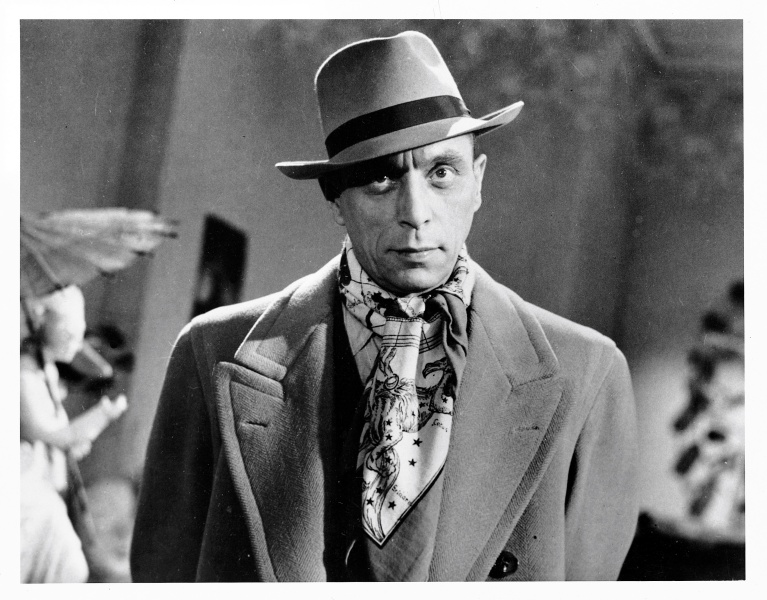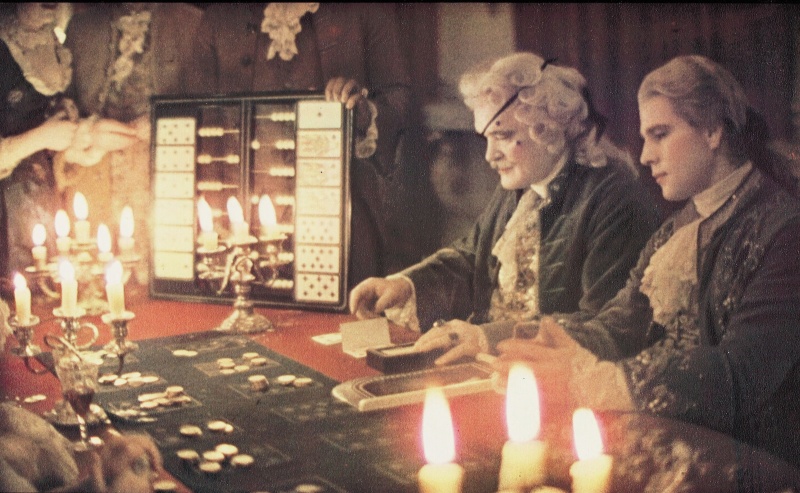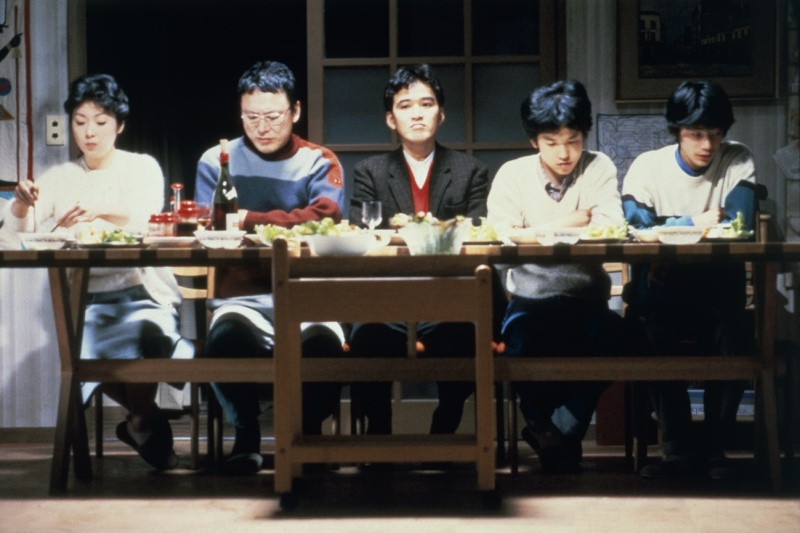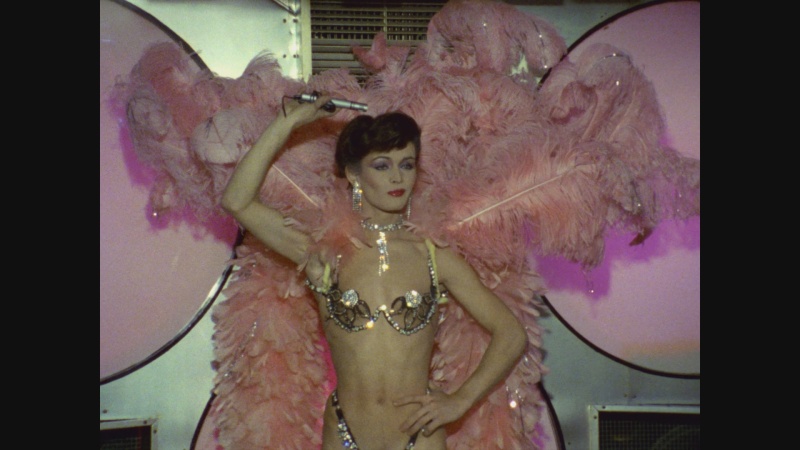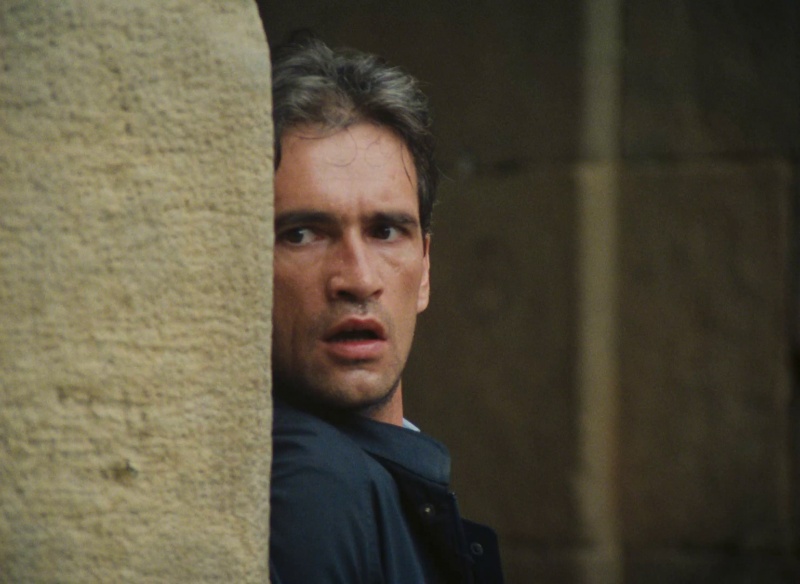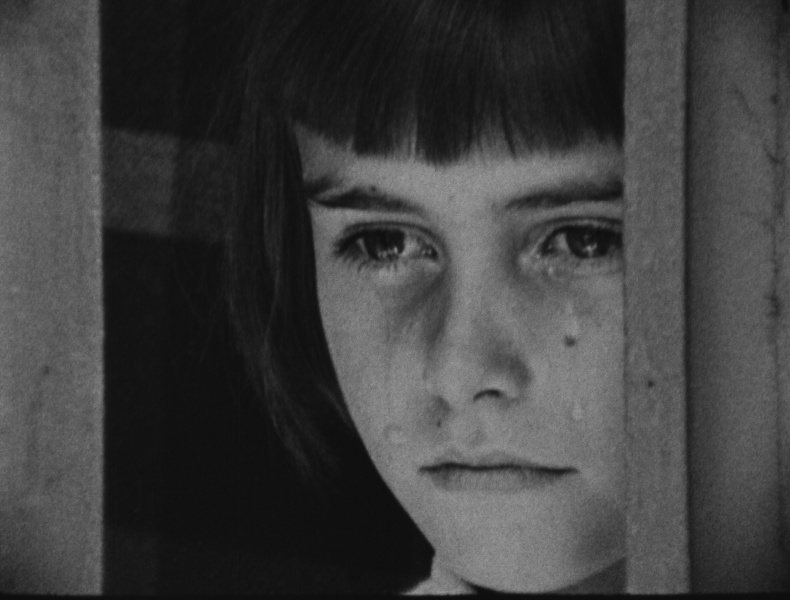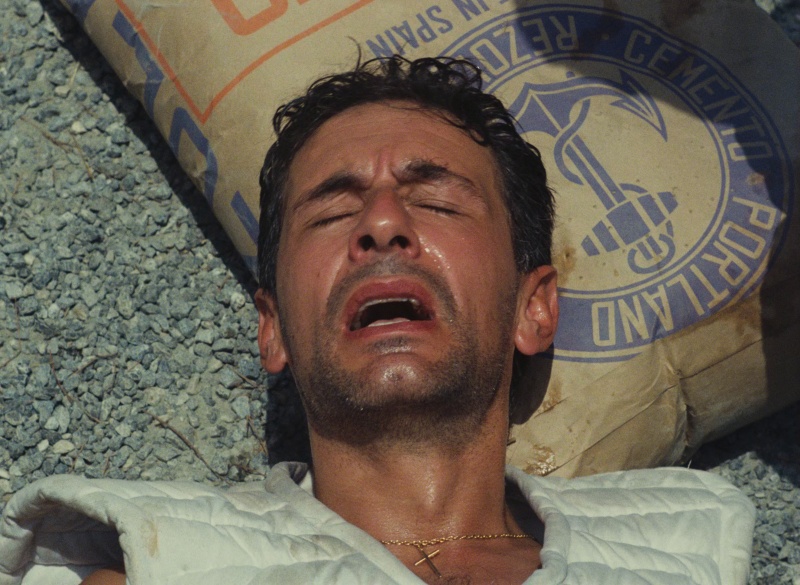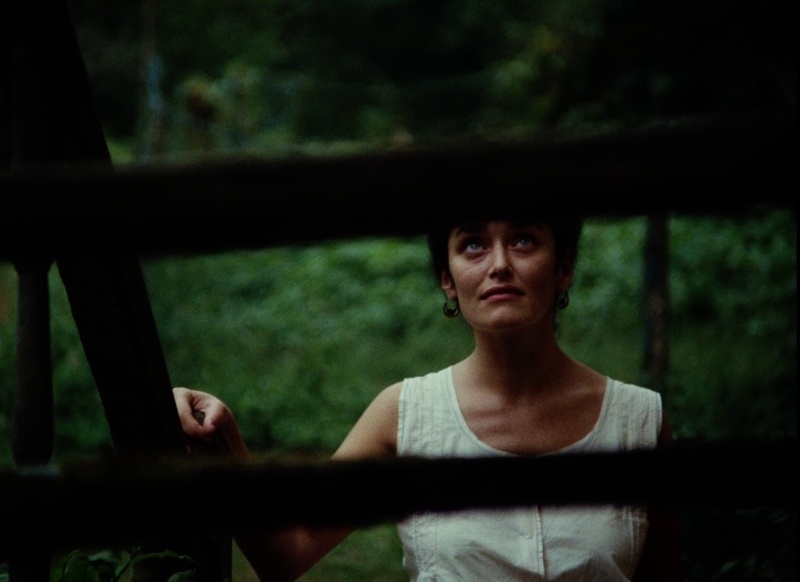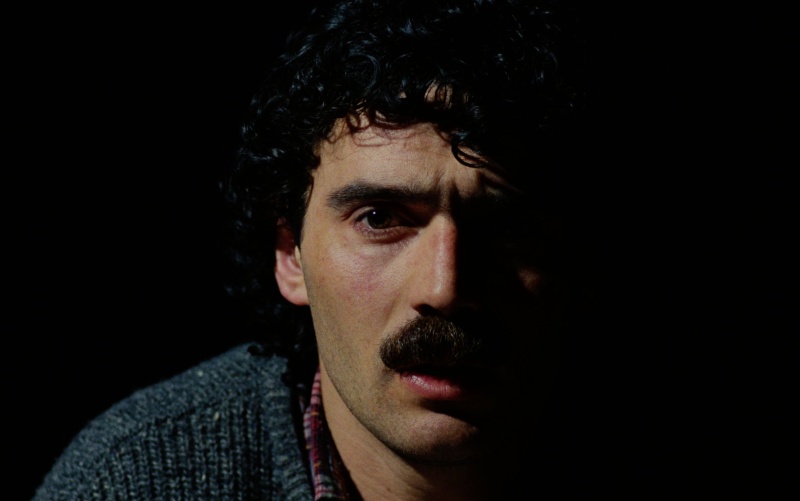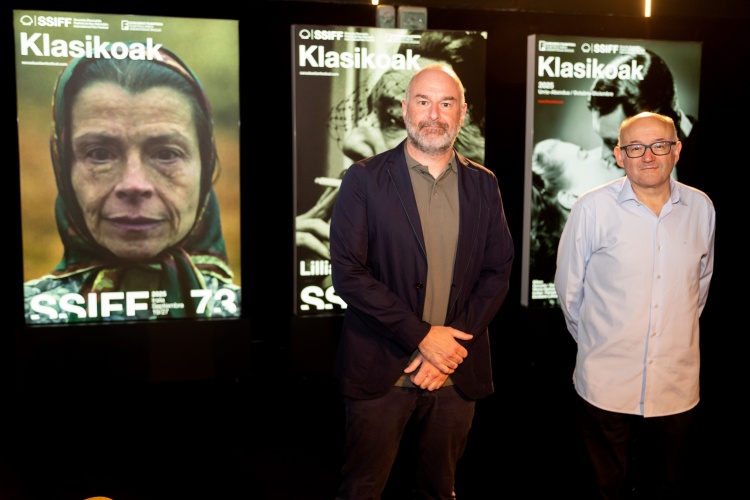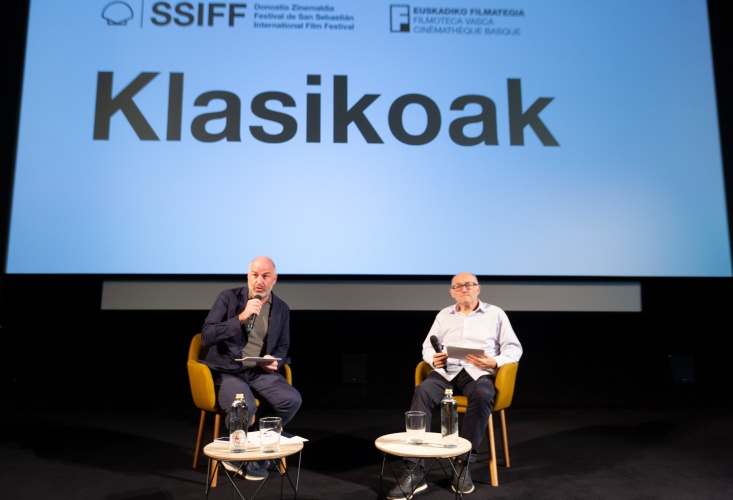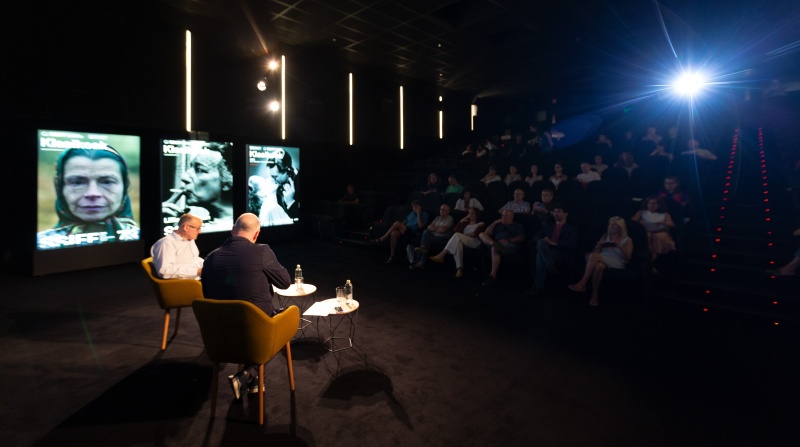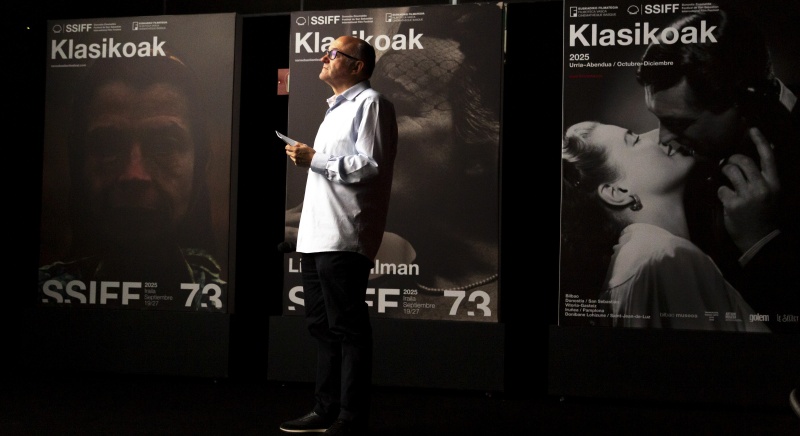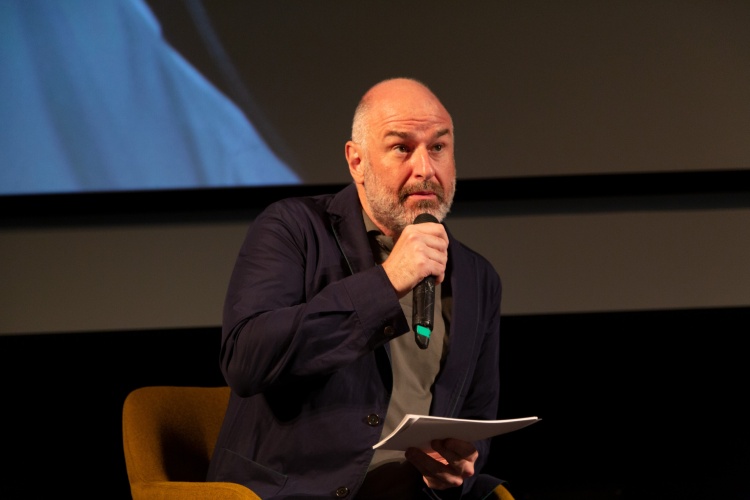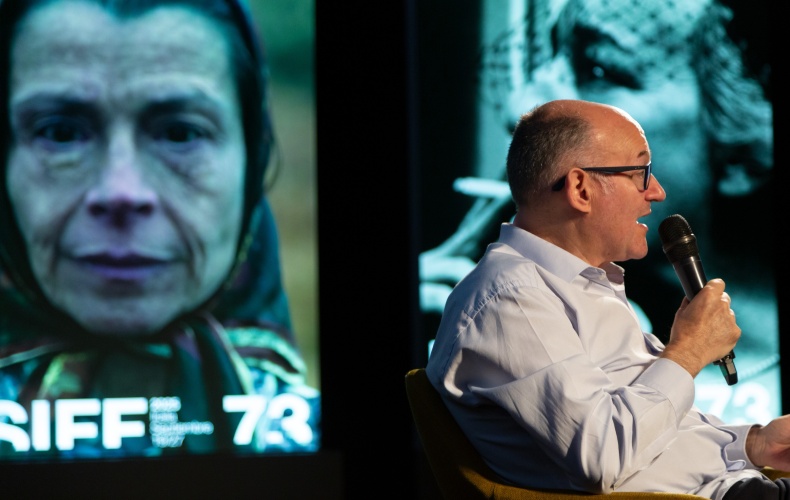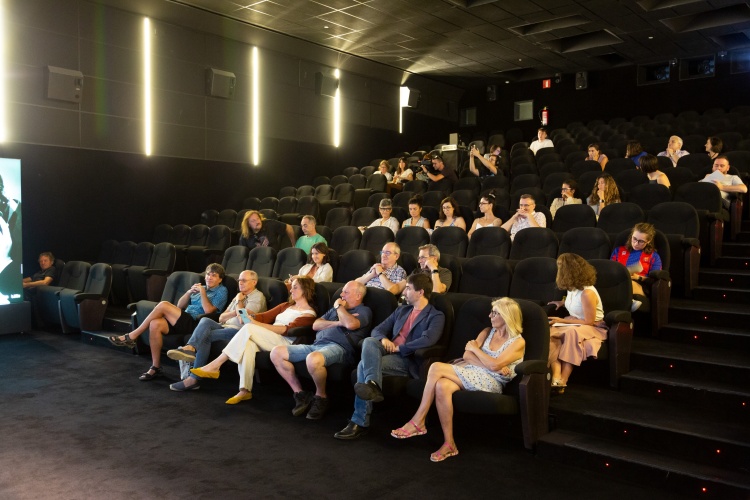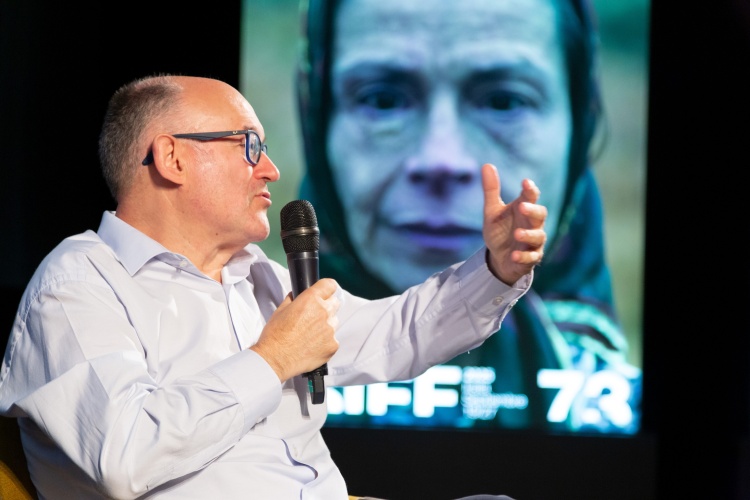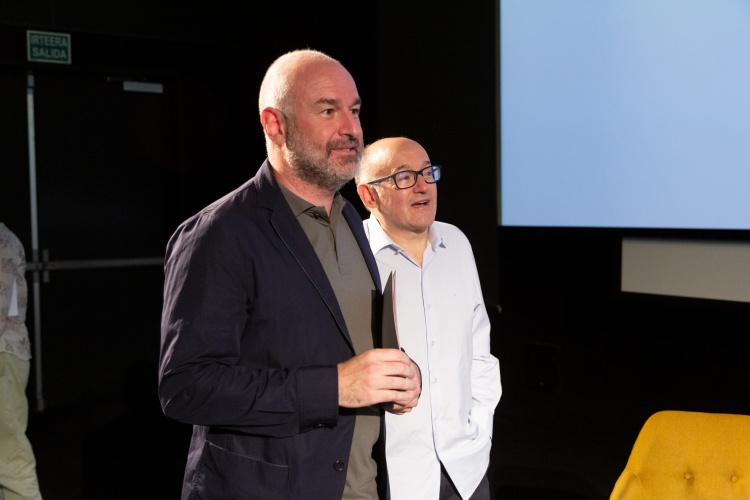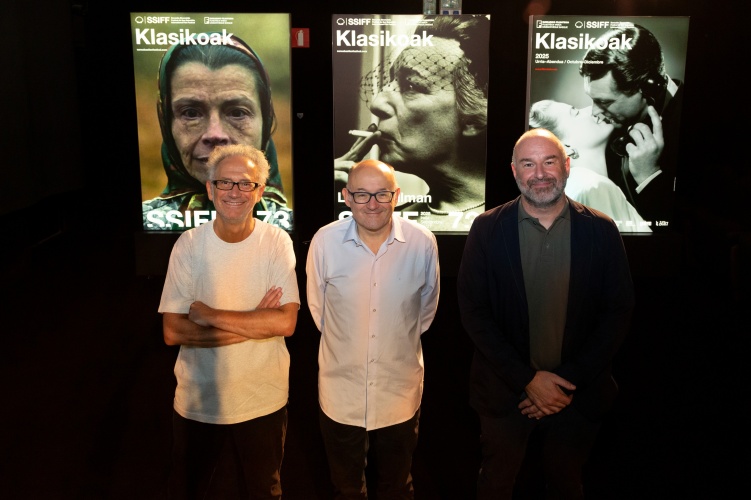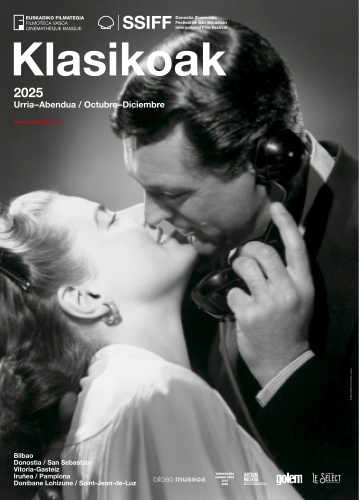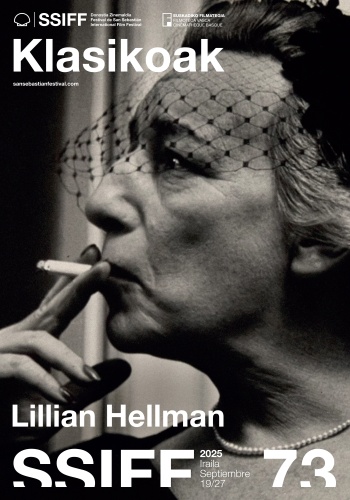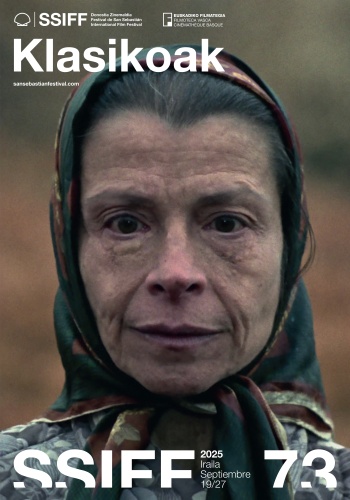Alfred Hitchcock’s Notorious (1946) will open the season of fourteen classic films curated by the Basque Film Archive and the Festival to be screened in Vitoria, Bilbao, San Sebastián, Pamplona and Saint-Jean-de-Luz in October
Klasikoak, the section dedicated to rescuing classics old and new from the history of world cinema, will, at the San Sebastián Festival’s 73rd edition, include twelve titles, including the works of Christian-Jaque, Jorge Fons, José Miguel (Jomí) García Ascot, Antonio Giménez-Rico, Stanley Kubrick, Yoshimitsu Morita and Manoel de Oliveira. These films will be shown alongside the opening film, Furtivos / Poachers (José Luis Borau, 1975), which won the Golden Shell and is celebrating its 50th anniversary this year. Also showing will be the previously announced, directed in the 80s by José Julián Bakedano, Xabier Elorriaga, Anjel Lertxundi and Alfonso Ungría.

The selection of restored works was announced today in the Tabakalera cinema by the heads of the San Sebastián Festival and the Basque Film Archive, José Luis Rebordinos and Joxean Fernández, respectively. Together they presented the posters of the three programmes making up the Klasikoak initiative: the section bearing the same name as the Festival, its classic retrospective (dedicated this edition to the screenwriter Lillian Hellman) and the quarterly season jointly organised with the Basque Film Archive which will start in October this year. The latter will open with Alfred Hitchcock’s classic Notorious (1946), the first of fourteen titles to run in Vitoria, Bilbao, San Sebastián, Pamplona and Saint-Jean-de-Luz.

A total of 42 titles will therefore screen under the umbrella of the Klasikoak brand from September to December, split into 124 screenings of classics old and new, both time-honoured paragons and new discoveries. Klasikoak therefore takes the shape of a classic film festival extended over time and space. A programme that, in the words of José Luis Rebordinos, “does not appeal to nostalgia, but rather to the need to remember and preserve memory.” “As cultural institutions, film festivals and film archives have an obligation to bring the cinema of the past into the present, whether they are classics known to the public or gems yet to be discovered. Rescuing these titles serves to shed light on new interpretations that connect these films with the present and, why not, also with the future,” he stressed.
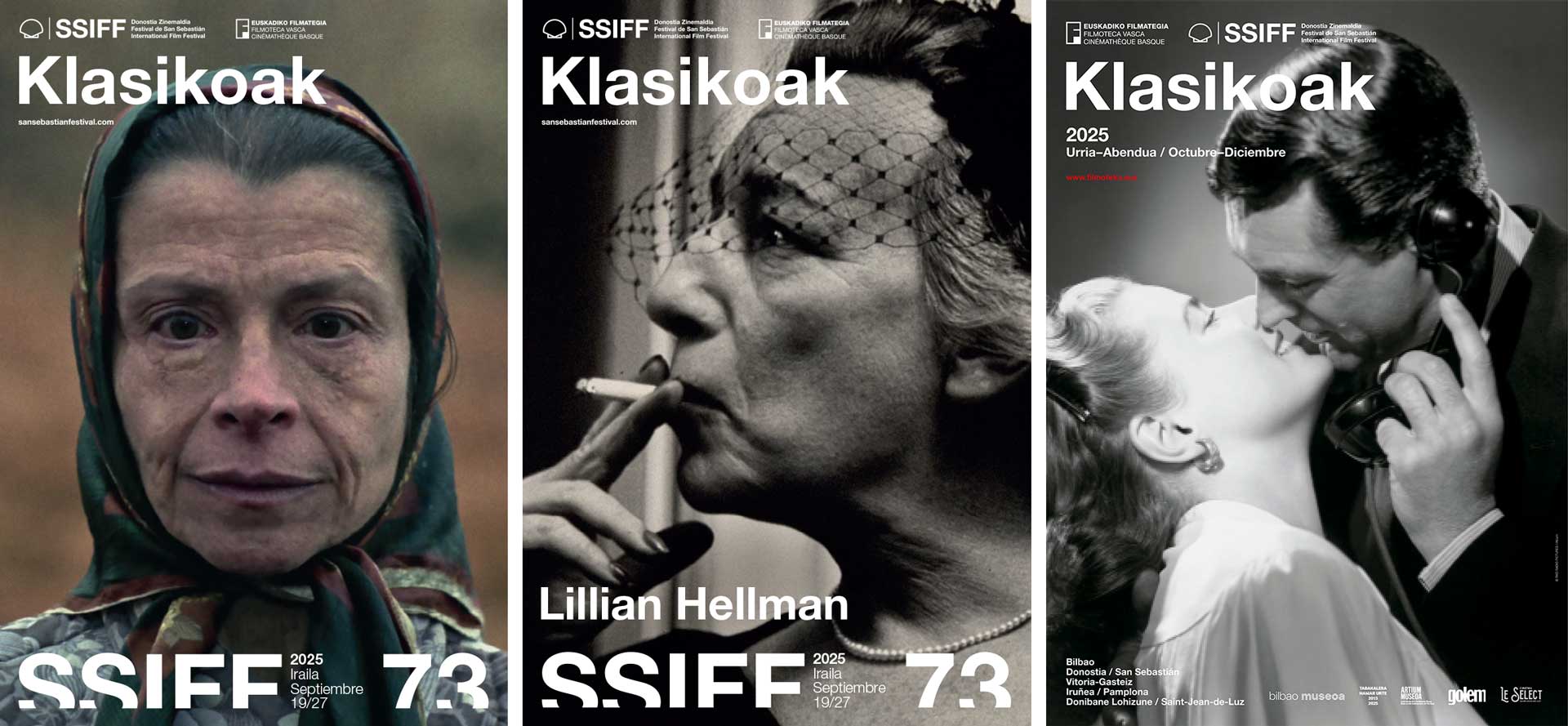
The Klasikoak selection
The vengeance of a man played by Louis Jouvet provides the starting point for Un revenant (A Lover’s Return, 1946), a film by Christian-Jaque (1904-1994). The French filmmaker, winner of the Best Director Award in Cannes and of the Silver Bear in Berlin with Fanfan la Tulipe (1952), also participated with Singoalla (1953) in the first edition of the San Sebastian Festival, to which he returned three years later with Si tous les gars du monde... (1956), winner of the Award for Best Screenplay - Foreign Film.
Salma Hayek, Bruno Bichir, Ernesto Gómez Cruz and María Rojo feature on the cast of El callejón de los milagros (Midaq Alley, 1994), closing film of Klasikoak. This is the famous adaptation of the novel by Naguib Mahfuz signed by Jorge Fons (1939-2022), who bagged a special mention at the Berlinale with the work. The multi award-winning Mexican director carried off the Special Jury Prize in San Sebastián with Rojo amanecer (1990) years after participating in the Festival’s Official Selection with Los cachorros (1975).
Klasikoak will also include a screening of En el balcón vacío / On the Empty Balcony (1961), a key work of Spanish Republican exile directed by José Miguel (Jomí) García Ascot (1927-1986). The film, about a woman who, from Mexico, confronts her past as a young girl refugee from the Civil War, has been restored by the Elías Querejeta Zine Eskola (EQZE) thanks to the backing of the Government of Navarre and the collaboration of Mexico’s Filmoteca UNAM.
Antonio Giménez-Rico (1938-2021) is the author of the non-fiction Vestida de azul (Dressed in Blue, 1983), a pioneer title serving to draw attention to trans women during the years of the Spanish Transition. The film had its premiere in San Sebastián Festival’s Official Selection, which celebrated the 40th anniversary of that occasion two years ago with a Talk on the subject of memory and trans activism.
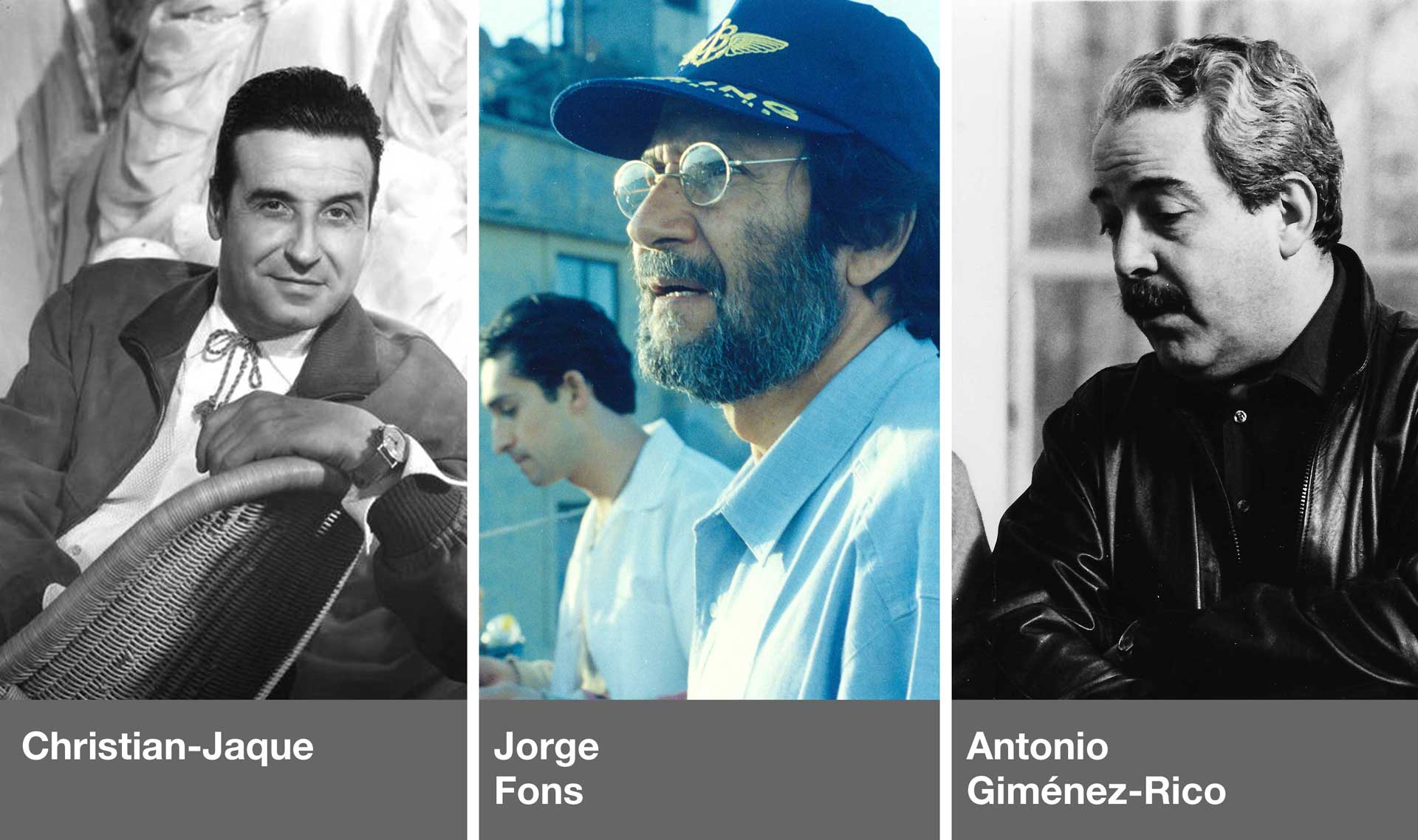
The film Barry Lyndon (1975), one of the most celebrated in the opus of Stanley Kubrick (1928-1999), follows the odyssey of a young, ambitious and unscrupulous Irishman (Ryan O’Neal) who is forced to emigrate because of a duel. The American moviemaker’s 10th work landed the BAFTA for Best Director and four Academy Awards in the categories of Best Art Direction, Best Cinematography, Best Soundtrack and Best Costume Design.
Kazoku gemu / The Family Game (1983), by the Japanese filmmaker Yoshimitsu Morita (1950-2011), is a biting and surrealist comedy using mastery and humour to address the underlying problems of an apparently normal family. The film landed a special mention from the jury at the Locarno Festival.
Lastly, the section will also show the debut of the former patriarch of Portuguese cinema, Manoel de Oliveira (1908-2015), who directed films for almost 80 years. His first feature film, Aniki Bóbó (1942), is a portrait of childhood on the banks of the Duero, in the homes, schools and alleyways of Porto in the 40s.
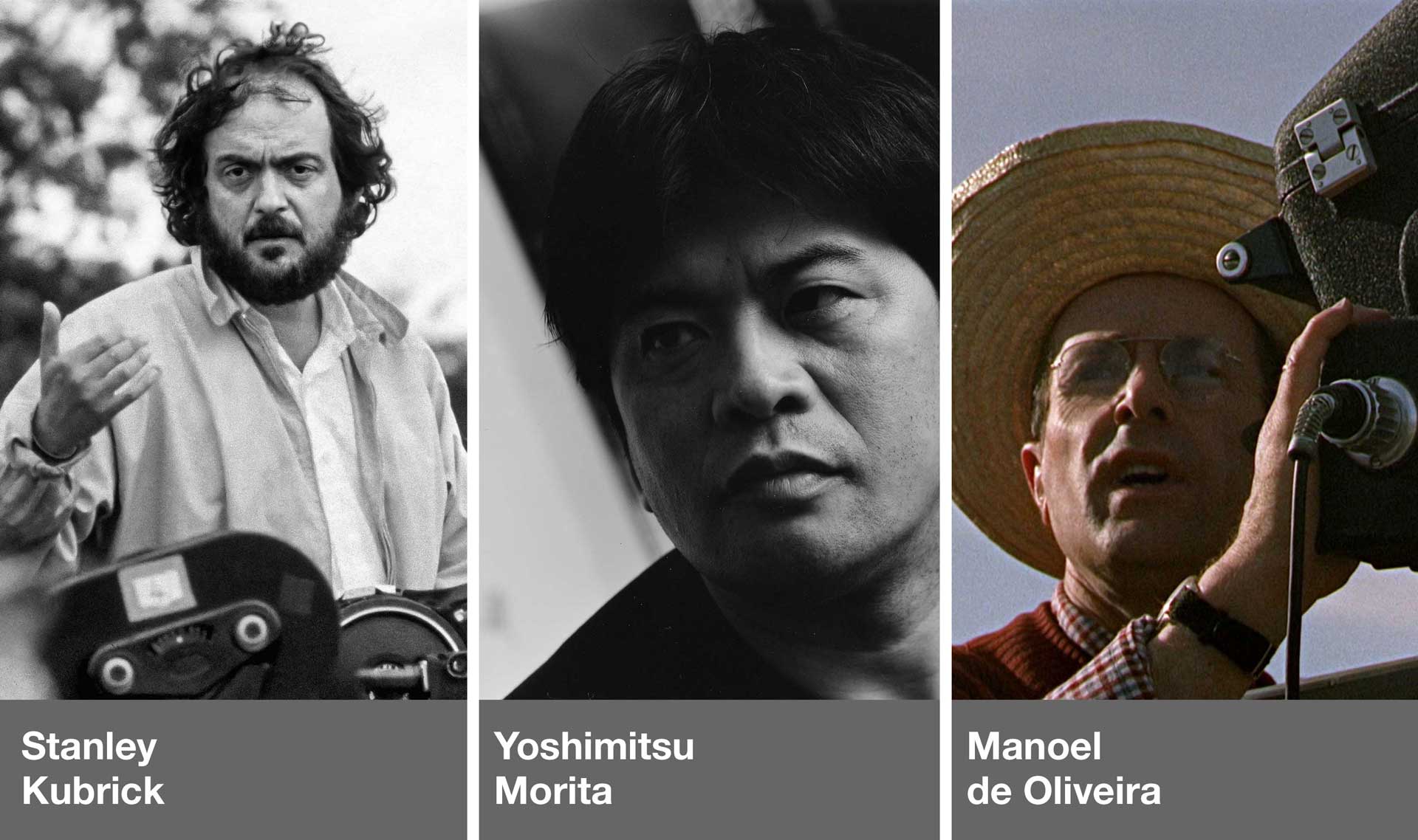
Another title will be added to this list of restored classics in the coming hours.
Lillian Hellman Retrospective
As recently announced, a total of 16 feature films released between 1935 and 1999 will make up the retrospective dedicated to the North American screenwriter Lillian Hellman. Organised by the Festival and the Basque Film Archive in collaboration with the Spanish Film Library, the season will take an exhaustive look at the work by Hellman, an essential name of classic Hollywood who worked alongside filmmakers such as William Wyler, Arthur Penn, William Dieterle and George Roy Hill.
The Klasikoak season (October-December)
The Basque Film Archive and the San Sebastian Festival will extend the Klasikoak programme from October to December. The season, previously held in spring and this year moved to autumn, will open with the screening of Notorious (Alfred Hitchcock, 1946), whose protagonists -Ingrid Bergman and Cary Grant- provide the image for the poster of the edition. According to Joxean Fernández, Director of the Basque Film Archive, “both actors iconically represent the self-same image of what is considered in cinematic terms as classic; Notorious is also one of Hitchcock’s masterpieces and an obligatory reference in the genre of spy movies and romantic thrillers, as well as an unbeatable way to start the season”.
Fernández also underscored the importance of this combined initiative: “Working together with the San Sebastián Festival and the collaboration with other film archives strengthens our network both in the Basque Country and abroad, enabling us to discover or revisit the best films and to continue our inavoidable task of transmitting the filmmaking culture”.
The complete programme, to include 14 titles and one special double bill, will be announced in late September. The showings will take place in Vitoria, San Sebastian, Bilbao, Pamplona and Saint-Jean-de-Luz. The first screening will take place on 1st October at the Artium Museoa in Vitoria.
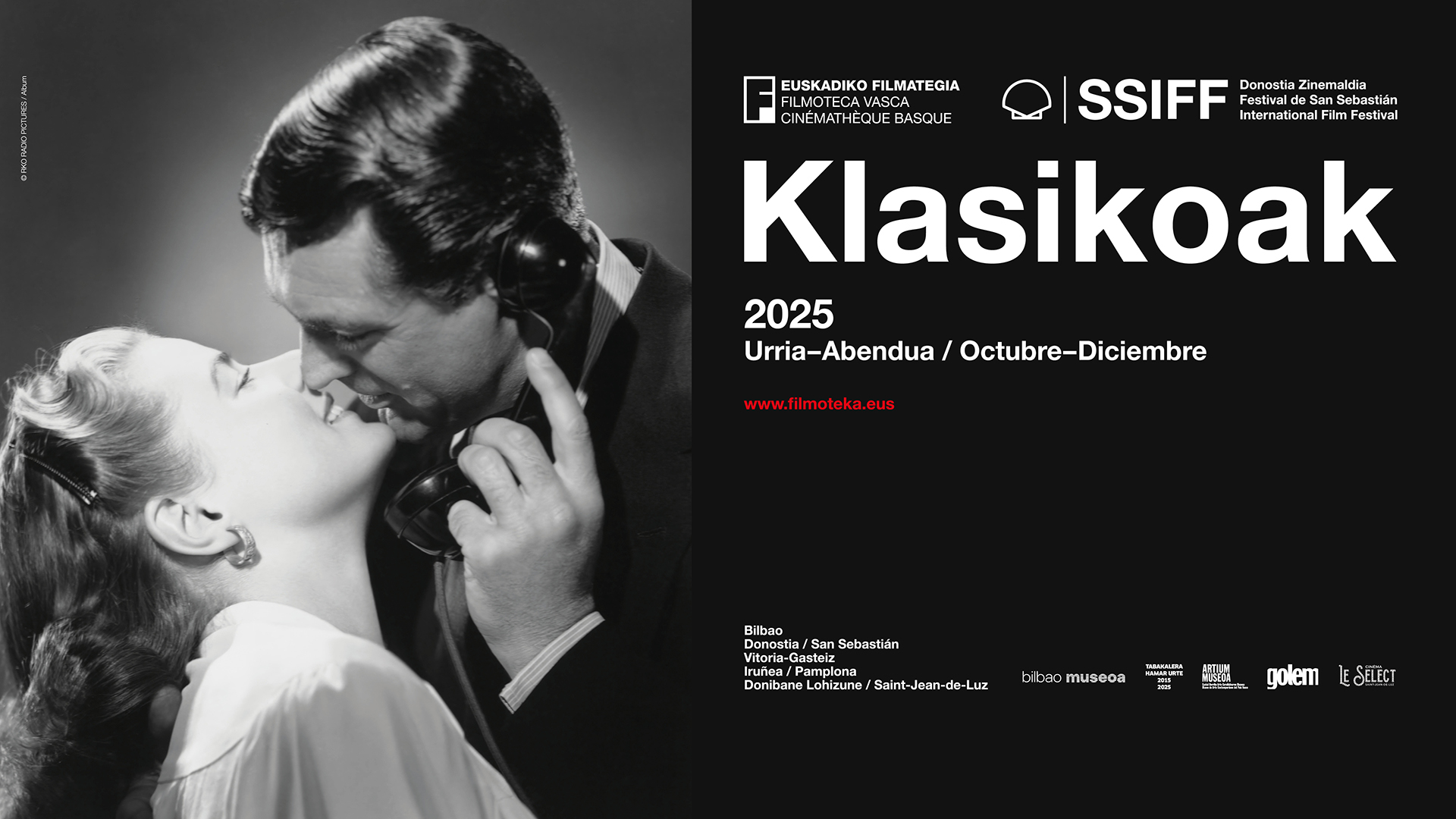
Klasikoak
An intense drama that explores the dark depths of human relationships in a rural, oppresive setting. The plot centers on Ángel, a poacher who lives in near-total isolation with his possessive and authoritarian mother, Martina. The arrival of Milena, a young fugitive, drastically alters his precarious balance. Ángel falls in love with her, arousing his mother's unhealthy jealousy and setting in motion a spiral of violence, manipulation and tragedy.
The film is a modern adaptation in the centre of Mexico City of the novel by Naguib Mahfuz, set in the Cairo of the forties. It focuses on Miracle Alley and is divided into four parts: the first three (Rutilo, Alma and Susanita) are self-standing tales of three people whose stories entwine with one another, and the fourth (El Regreso) completes the narratives a couple of years later.
Carlito, the shy dreamer, and Eduardinho, the fearless leader, both court Teresinha, the only girl in the group. To show his affection, Carlito steals a doll and one night, runs over rooftops to deliver it. Tension builds between the boys, and the group begins to turn against Carlito.
The bests revenges are served cold. Jean-Jacques returns to his hometown of Lyon, where 20 years earlier he had survived a murder attempt by one of his friends, a bourgeois who disapproved of his marriage to his sister. Jean-Jacques finds him, seduces Geneviève again, but cruelly abandons her and throws his friend's son into the arms of an unstable prima ballerina, nearly pushing him to suicide.
Adaptation of the novel by the English author William Thackeray. Barry Lyndon, a young and ambitious Irish rogue, has to emigrate because of a duel. He proceeds to lead merry and adventurous life. But his dream is to climb the social ladder. To succeed, he marries a wealthy widow, earning himself a place amongst the 18th-century English nobility.
The unraveling begins in what appears to be an ordinary lower-middle-class Japanese family when the parents hire a tutor to help their junior high school son with his failing grades. The enigmatic tutor is like a loose cannon, ricocheting through the family and twisting conventional facades into the realm of the absurd.
This is the Madrid of 1983 and six stunning ladies of the night go about their profession in mink coats, tights and little more... until several police cars with flashing lights cordon off the street and carry off six trans women... "We're luxury whores!". Over a relaxed lunch, they talk to the camera about their experiences as artists and prostitutes, about their alienation and repressive laws, about their youth and the discovery of being trapped in the wrong body.
It’s 8 in the morning one summer in the early 70s. Ion, an ETA activist, runs for his life through San Sebastian’s Old Town with the police hot on his heels. The city is coming to life, and people are going about their usual routine. As he runs, Ion looks back at the story of his life. His memories of school, where he was forced to renounce his identity, alternate with the look in his father’s eyes and the figure of Madeleine.
One morning in 1936, the war made its appearance from the balcony before the eyes of the little Gabriela: a man on the run is hiding in the interior courtyard of the building and neither say a word; but the screams of a woman neighbour give him away and the man is arrested by the supporters of the coup. The evocation of that collective wound appears as a singular and non-transferable pain. Only the empty balcony is left, the image of that first farewell.
Domingo lives for gambling. He takes bets at rowing boat races, pelota courts and the squares where all sorts of competitions are held. But it’s also an obsession that pushes him to take risks, always in cahoots with his cowardly and cynical sidekick, Kornelio. The loneliness of his wife Marcelina reveals the other side of a tale where tragedy could strike at any time.
Based on the novel of the same name by Arantxa Urretabizkaia, the film follows the life of a 30 year-old married woman and her son. The protagonist asks herself what drove her husband, Txema, to leave her alone with their child. Internal monologues serve to explore subjects such as motherhood, loneliness and everyday routine in the Basque society of the late 70s.
Manuel narrates his peaceful life with his brother Ramón until the arrival of a prostitute turns everything on its head. Esther’s presence sparks tension and conflict between the siblings until things come to a tragic end. The film explores family relations and repressed emotions in a rural environment.

